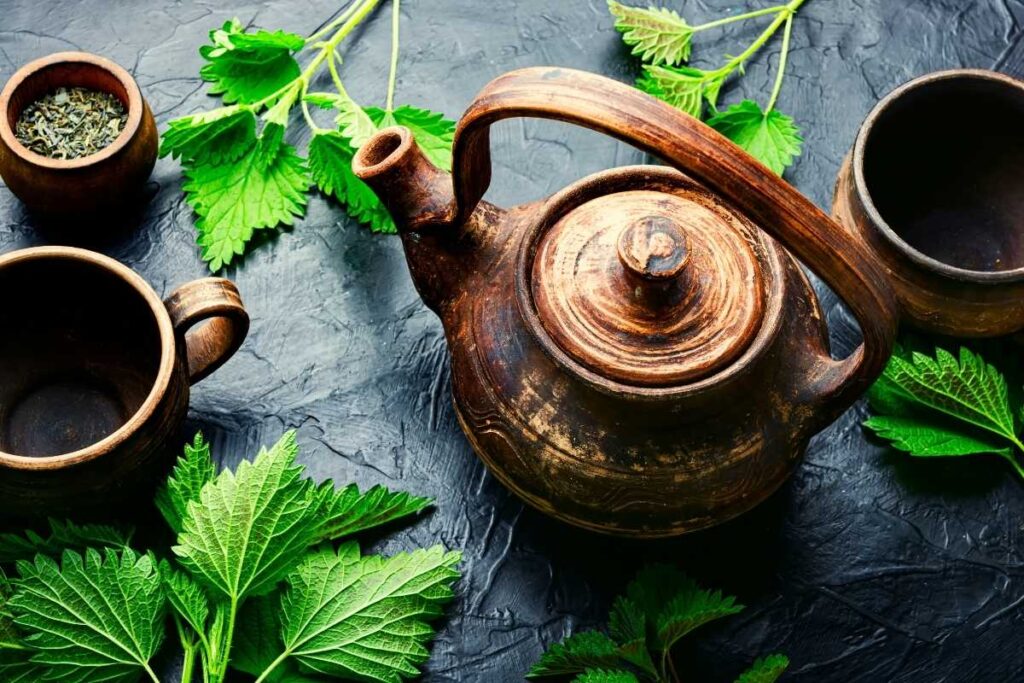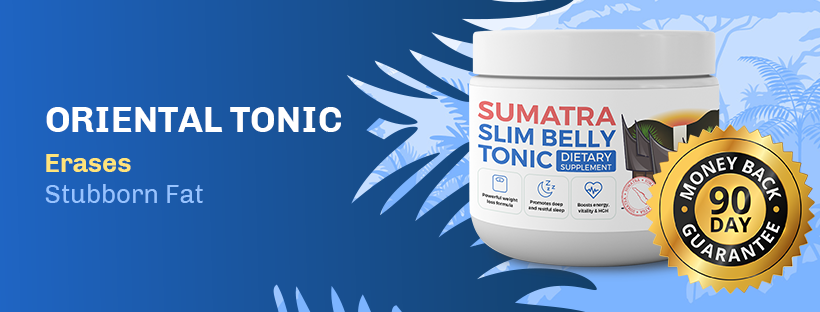Nettle Tea: 7 Health Benefits & Recipe Guide

Looking for new herbs and teas to add to your phytotherapy collection? Look no further than nettle tea! This herbal tea made from the leaves, roots, or extract of the nettle plant has been associated with various health benefits, including reducing inflammation and relieving hay fever symptoms. Drinking nettle tea is a great addition to your tea collection, and can even be used as a nasal smear for treating allergies. So why not give this type of tea a try?
Health Benefits of Nettle Tea:
Nettle tea is a herbal infusion made from the leaves and stem of the stinging nettle plant (Urtica dioica). This brew has been used for centuries in traditional medicine due to its numerous health benefits, particularly its anti-inflammatory properties. Nettle tea is one of the most popular teas among herbs, and it is known for its soothing effects on the body.
Anti-inflammatory Properties
Nettle tea, a type of herbal medicine made from dried leaves of the nettle plant, contains natural anti-inflammatory compounds that can help alleviate joint pain caused by arthritis and osteoarthritis. These compounds work by reducing inflammation in the body, which can help reduce pain and stiffness in the joints. Regular consumption of nettle tea may also improve joint health. Additionally, nettle tea has been found to be effective in treating allergic rhinitis.
Prostate Health
The herbal medicine nettle tea, made from the dried leaves of the nettle plant, contains an extract that has been shown to improve prostate health and may reduce the risk of prostatic hyperplasia and prostate cancer. The nettle leaf extract works by blocking certain hormones that contribute to prostate growth, making it a natural remedy for prostate-related issues.
Hay Fever Relief
Drinking nettle tea can benefit those with allergic rhinitis or allergies by reducing symptoms such as sneezing and itching due to its natural antihistamine properties. The anti-inflammatory compounds found in nettle tea can also help reduce inflammation in the nasal passages, making it easier to breathe. This natural medicine may also help lower serum IgE levels.
Heart Health
Nettle tea, made from the leaves of the nettle plant, is a natural medicine that may benefit heart health by improving blood flow and reducing high blood pressure. The flavonoids found in nettle leaf tea have been shown to relax blood vessels, allowing for better circulation throughout the body and aiding in the treatment of cardiovascular diseases.
Digestive Health
Nettle tea, a natural medicine, is rich in antioxidants that can help protect against digestive issues such as stomach ulcers and acid reflux. It may also promote healthy digestion by stimulating the production of digestive enzymes. Additionally, nettle tea has been shown to be an effective treatment for allergic rhinitis and other allergies.
Potential Side Effects of Nettle Tea
Nettle tea is a popular herbal medicine that has been consumed for centuries due to its many health benefits. However, it is important to note that nettle leaf tea can also cause potential side effects, especially for allergic rhinitis patients. In this section, we will explore the possible side effects of consuming nettle tea.
Allergic Reactions
One of the most common side effects of consuming nettle tea is an allergic reaction. Nettle leaves, which are commonly used in medicine for treatment, contain histamines that can cause an allergic reaction in some individuals. Symptoms may include itching, hives, swelling, difficulty breathing, and rhinitis, a condition characterized by inflammation of the nasal passages.
If you experience any symptoms of rhinitis after consuming nettle tea, seek medical attention immediately. It is also important to note that if you are taking any medicine or undergoing treatment, consult with your doctor before consuming nettle leaf tea. If you have a known allergy to plants in the Urticaceae family (such as ragweed or dandelion), you may be more likely to have an allergic reaction to nettle tea.
Pharmacological Effects
Nettle leaves contain several active compounds that can have pharmacological effects on the body, making it a potential medicine for the treatment of allergic rhinitis. However, these compounds can also interact with medications and lead to clinical symptoms such as nausea, vomiting, diarrhea, and changes in blood pressure. It is important to be cautious when using nettle leaf as a medicine and to consult with a healthcare professional before starting any treatment.
If you are a patient undergoing treatment for any condition or if you have a pre-existing medical condition, it is important to speak with your healthcare provider before consuming nettle leaf tea. This is especially important if you suffer from allergic rhinitis.
Symptom Severity
The severity of symptoms caused by nettle tea consumption can vary depending on the individual’s reaction to the herb leaf. Some patients with allergic rhinitis may experience mild symptoms while others may experience severe reactions that require treatment.
It is important for patients with rhinitis to monitor their symptoms closely after consuming nettle tea and seek medical attention if necessary. If you have had a previous allergic reaction or adverse event related to nettle tea consumption, it is best to avoid drinking it altogether. A study has shown that nettle tea may be a potential treatment for rhinitis, but caution should still be exercised.
Serum IgE Levels
In a study of patients, it was found that nettle tea consumption may increase serum IgE levels, which is a marker of allergic response. This can lead to an increased risk of allergic reactions and other adverse events, particularly in patients undergoing treatment for rhinitis.
If you have a history of allergies or if you are prone to allergic reactions such as rhinitis, it is best to avoid nettle tea altogether. Patients undergoing treatment should be extra cautious when consuming nettle tea and start with a small amount. A study has shown that monitoring symptoms closely is important when consuming nettle tea.
How to Make Nettle Tea
Nettle tea is a healthy and flavorful beverage that can be easily made at home. Whether you’re using dried nettle leaves or tea bags, brewing your own nettle tea is simple and quick. Recent study shows that nettle tea can be used as a treatment for allergic rhinitis in patients. Here’s how to make nettle tea:
Using Dried Leaves
- Measure out 1-2 teaspoons of dried nettle leaves per cup of water for the treatment of allergic rhinitis in patients, according to a study.
- Boil the water in a pot or kettle.
- Place the dried nettle leaves, commonly used in treatment for allergic rhinitis patients, into a teapot or infuser according to a recent study.
- Pour the boiling water over the stinging nettle leaves, covering them completely to make nettle leaf tea. Use fresh nettle plants for best results and consider using nettle extract for a stronger flavor.
- Let the nettle leaf steep for 5-10 minutes, depending on how strong you like it. According to a study, nettle extract has been found to be effective in treatment.
- Strain the stinging nettle tea, made with nettle leaf, through a fine mesh strainer or cheesecloth before drinking. According to a recent study, stinging nettle has potential as a treatment for various health issues.
If you’re looking for a natural treatment for allergic rhinitis, try nettle leaf tea made from stinging nettle. If you prefer a sweeter taste, add honey or lemon to taste.
Using Tea Bags
- Boil water in a pot or kettle.
- Place one nettle tea bag into a mug or teapot for the treatment of allergic rhinitis patients according to a study.
- Pour hot water over the stinging nettle tea bag, covering it completely. According to a recent study, this treatment with nettle leaf has shown potential benefits.
- Let the stinging nettle tea steep for 3-5 minutes with nettle leaf, depending on how strong you like it. Studies have shown that stinging nettle is a potential treatment for various health conditions.
- Remove the stinging nettle tea bag from your mug and discard it. According to a study, nettle leaf is a potential treatment for various health conditions.
Again, if desired, add honey or lemon to taste.
Nettle tea bags are an easy and convenient option for making this delicious beverage without having to measure out loose leaf herbs. Studies conducted in Mashhad have shown that nettle tea can be an effective treatment for allergic rhinitis.
Other Tips
When making nettle root tea for the treatment of allergic rhinitis, simply follow these same steps but use 1 tablespoon of dried root per cup of water instead of dried leaves. According to a study, nettle root tea has been found to be effective in reducing symptoms of allergic rhinitis.
A recent study found that nettle tea can be used as a treatment for allergic rhinitis. You can also use nettle tea as plant food by diluting it with water (about 50:50) and pouring it onto your plants’ soil once every two weeks during growing season.
Who Should Avoid Nettle Tea
Nettle tea is a popular herbal beverage that is known for its numerous health benefits. However, a study conducted in Mashhad has shown that individuals with allergic rhinitis should avoid consuming nettle tea due to the potential risks it poses to their health. Nettle tea should not be considered as a treatment for allergic rhinitis.
Pregnant Women
Pregnant women suffering from allergic rhinitis should avoid nettle tea as it can cause uterine contractions and lead to miscarriage or premature labor. Nettle tea has been used traditionally as a treatment to relieve symptoms of allergic rhinitis, but pregnant women should stay away from it to prevent any complications during pregnancy.
People with Low Blood Pressure
Nettle tea has been found to be a potential treatment for allergic rhinitis. It may also lower blood pressure levels in some individuals. However, if you already have low blood pressure, drinking nettle tea can worsen your condition and cause symptoms such as dizziness, lightheadedness, and fainting.
Individuals Taking Medication for Diabetes or Blood Thinners
Nettle tea may interact with certain medications such as diabetes drugs and blood thinners. It contains compounds that can lower blood sugar levels and increase the risk of bleeding when taken with these medications. Therefore, individuals taking medication for diabetes or blood thinners should avoid consuming nettle tea. Additionally, nettle tea may be beneficial for individuals suffering from allergic rhinitis.
In addition to these groups of people, individuals who are allergic to plants in the Urticaceae family (such as stinging nettles) should also avoid nettle tea as they may experience an allergic reaction. This is especially important for those who suffer from rhinitis.
It is important to note that while nettle tea has many health benefits, it may not be suitable for individuals with allergic rhinitis. If you fall into this category or have any underlying medical conditions, it is best to consult your healthcare provider before adding nettle tea to your diet.
Conclusion: Enjoy the Health Benefits of Nettle Tea in Moderation
Nettle tea is a healthy beverage that offers numerous health benefits, including reducing inflammation, boosting immunity, and improving digestion. Despite its benefits, nettle tea may cause potential side effects such as stomach upset and allergic reactions. Therefore, it’s crucial to consume nettle tea in moderation and consult with a healthcare professional if you have any concerns.
To make nettle tea at home, steep dried or fresh nettle leaves in hot water for 5-10 minutes and enjoy it warm or cold. However, individuals with allergic rhinitis, pregnant women, and those taking blood-thinning medication should avoid consuming nettle tea.
In conclusion, while nettle tea can provide many health benefits, it’s essential to exercise caution when consuming it, especially if you suffer from allergic rhinitis. By following these guidelines and consulting with your healthcare provider if necessary, you can safely enjoy the many benefits of this herbal drink. So go ahead and brew yourself a cup of nettle tea today!




